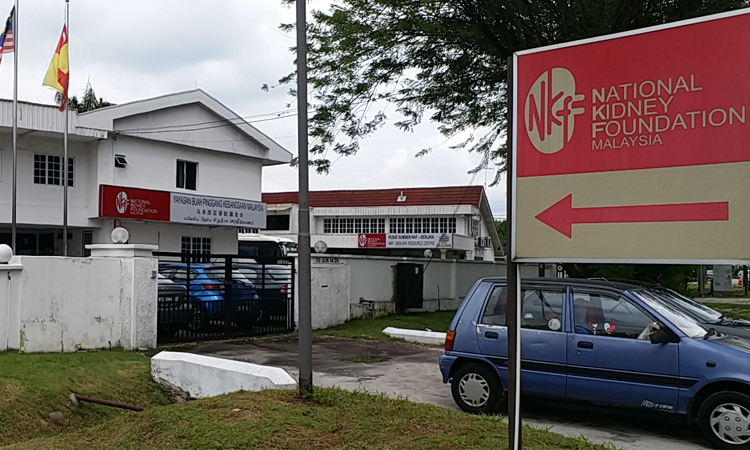- About
- Kidney Disease
- Public Education
- Treatment
- Patient Welfare
- Training
- Events
- SUPPORT US
- News
- Research


Do you know that your Kidneys…?
If kidney damage becomes too severe, one’s kidneys lose their ability to function normally, this is called End Stage Kidney (Renal) Disease, ESRD, or Kidney Failure.
Diabetes and high blood pressure are the two known leading causes of ESRD, accounting for more than 60 percent of new cases of dialysis patients in Malaysia. Kidney disease can also develop from infection, inflammation of blood vessels in the kidneys, kidney stones and cysts. Other possible causes include prolonged use of pain relievers and use of alcohol or other drugs (including prescription medications).
There are three types of Kidney Failure:
This is the sudden loss of kidney functions over a few hours or days. It can be due to one of the various types of kidney diseases or may be due to infections or low blood pressure after an accident.
Loss of kidney functions in Acute Kidney Failure is usually temporary, but can be life threatening. In most cases, this type of kidney failure is reversible, but it occasionally may not respond to treatment and may progress to Chronic Kidney Failure or End Stage Kidney Failure.
Acute Kidney Failure is more common in men than in women. When Acute Kidney Failure occurs, investigations are undertaken to determine the cause. This may include a kidney biopsy.
Sometimes there are specific, treatable causes, but often it is simply a case of waiting patiently for the kidneys to heal themselves and recover their functions.
Many people with Acute Kidney Failure require dialysis, while they are waiting for their kidneys to recover. However sometimes Acute Kidney Failure can be managed conservatively, by simply watching the blood pressure and the blood chemistry and waiting for kidney functions to return.
When the loss of kidney functions is gradual and progressive, it is referred to as Chronic Kidney Failure. Eventually, the kidneys are unable to remove wastes or maintain the body’s salt and fluid balance, resulting in the need to receive dialysis treatment. The symptoms of this type of kidney failure may not be noticed immediately.
A build-up of creatinine (a waste product normally removed by the kidneys) in the blood will indicate kidney functions and the level of kidney impairment. The risk of Chronic Kidney Failure increases with age.
This phrase means that the kidneys have failed completely, and can no longer support life. Some people with End Stage Kidney Failure stop passing urine completely; others will still pass some weak, watery urine.
